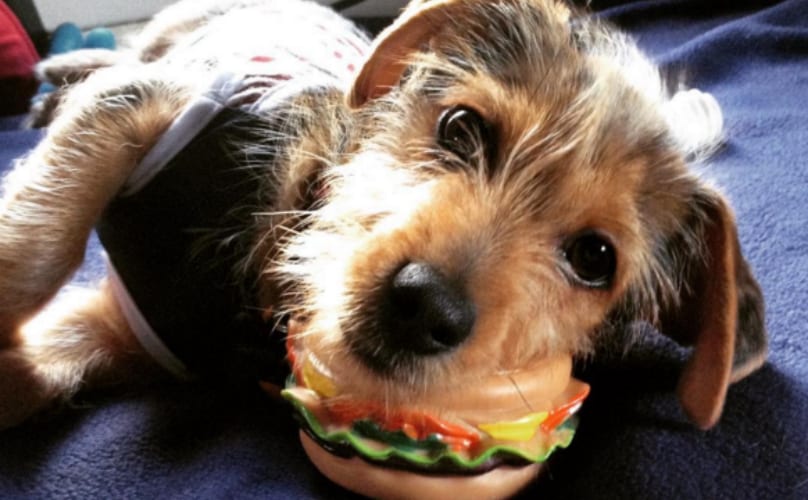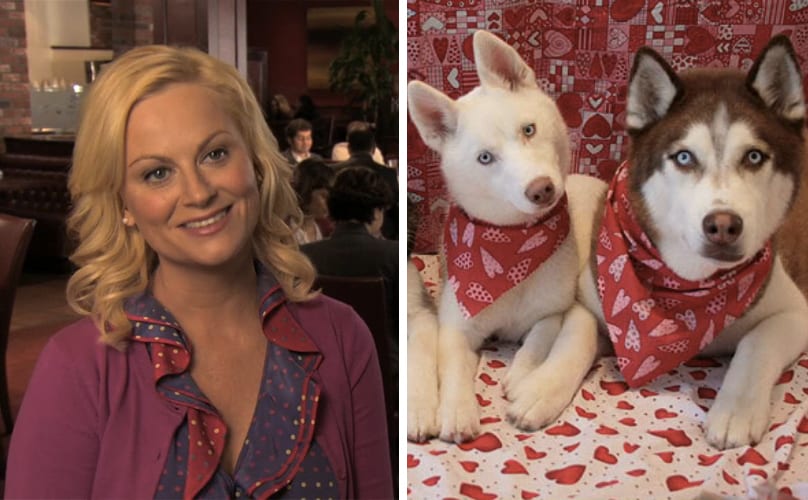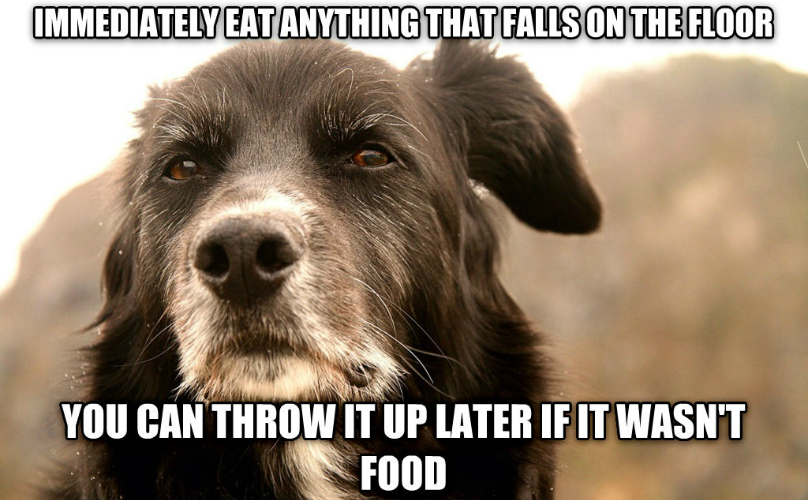My Chihuahua, Freenie, apparently reads as masculine to many people. For starters, her name is gender-neutral. She’s a tough Chi, and none of her accessories are particularly gendered. When people refer to Freenie as “he,” I usually don’t correct them. Even a vet tech once called her “him.” If I later refer to Freenie as “she” or “her,” the human I am interacting with will often apologetically correct themselves. “Oh, sorry! I thought it was a boy.”
Does Freenie give a poop? Something tells me she doesn’t think about it.
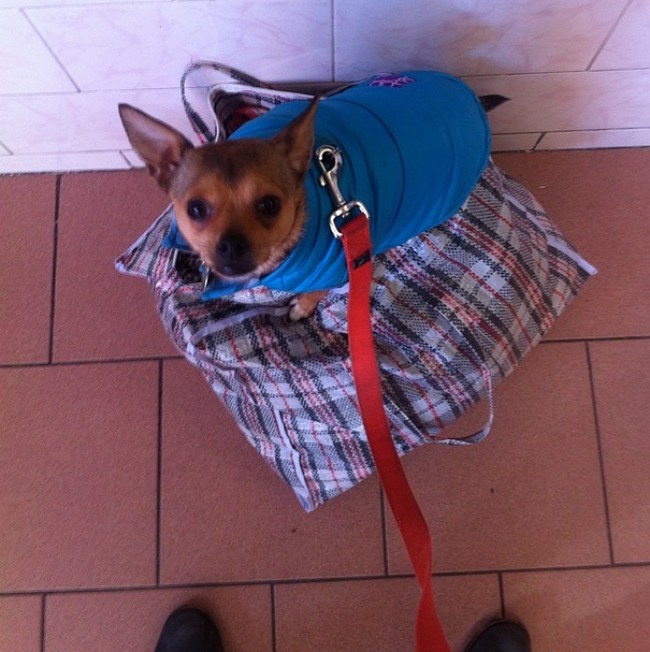

Yet it bothers a lot of us when people get our dog’s sex wrong. Dog owners often feel the need to correct others who use the wrong pronouns for their dog. Gender norms are so ingrained in our society’s language and thoughts, so people are sensitive to the language itself. Many Western languages have masculine and feminine pronouns as well as nouns. Other languages have a single pronoun for everyone.
Technically, animals do not have “genders.” Gender is often defined academically as social roles based on the sex of the person as designated and taught by culture. Sex, on the other paw, is the biological makeup of an individual’s reproductive anatomy or secondary sex characteristics.
Sexuality and gender are not the same thing, though they are often mentioned in the same breath. Same-sex sexual behavior is not rare in the animal kingdom. But that’s a tail for another time!
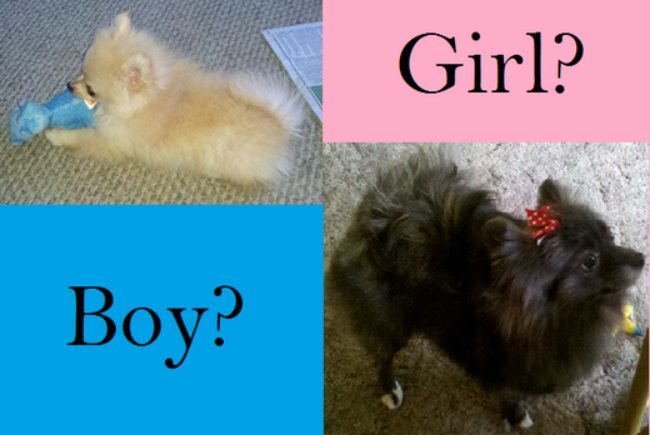

Gender stereotypes are so pervasive in our culture that they are often applied to things other than humans. Our society has a need to categorize when it comes to gender. Our children’s toys for example—girls are given dolls and boys are given trucks. (Though it’s changed a lot in recent decades.) Dog toys aren’t gendered as much as human children’s toys. For one thing, dogs can’t differentiate between “boy” colors and “girl” colors. You won’t likely see princess dolls or monster trucks for dogs; dogs get wooly mammoths and bottles with messages inside them, as well as a menagerie of animals, balls, ropes, you name it.
Clothing and accessories are a little different. Pink, blue, bow-ties, hair bows, collars, carriers, and Halloween costumes are gendered pretty heavily.
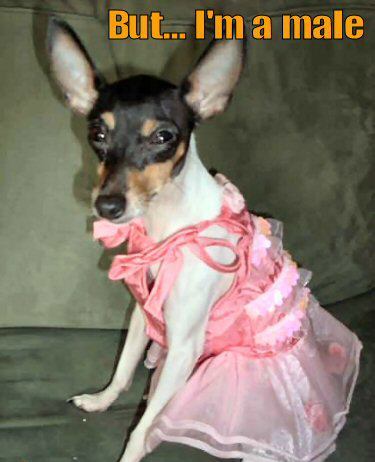

There are as many opinions on the subject of temperament between the sexes as there are types of dog in the world (including mutts.) Stereotypes abound. People often claim that male dogs are less emotional, goofier, more aggressive, territorial, attention-seeking, rougher at play, silly, and dominant. Female dogs are often labeled as moodier, opinionated, more affectionate, more independent, easier to train, more nurturing, dainty, high-maintenance, and dedicated to just one human. Does any of this totally conflict with your dog’s behavior? European scientists recently made the claim that girl dogs are nicer than boy dogs.
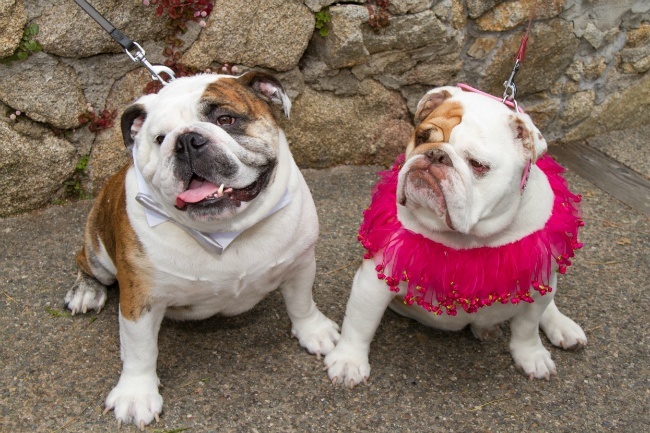

Our dogs are extensions and reflections of ourselves and our identities. Most dog owners see themselves in their dog, and we see others in their dogs. Who among us hasn’t made an assumption about a person based on the type of dog they have? What do you think when you see a big tough guy walking a tiny, fluffy Pomeranian? How about a tiny woman with a large Pit Bull?
Cosmo, CKCS (2 y/o), Union Sq, NY, NY • “His tail was pink, but everyone kept calling him a girl, so now it’s blue.” pic.twitter.com/TQflxiQb4e
— The Dogist (@thedogist) April 29, 2015
The discussion of gender roles, norms, and identity is becoming more and more prevalent in mainstream society. Can the discourse be applied to dogs? We often project human emotions and personalities onto our furry BFFs. We think our dog is smiling, happy to see us, sad, or ashamed. Does your dog really love you, or simply see you as a source for food and poop scooping?
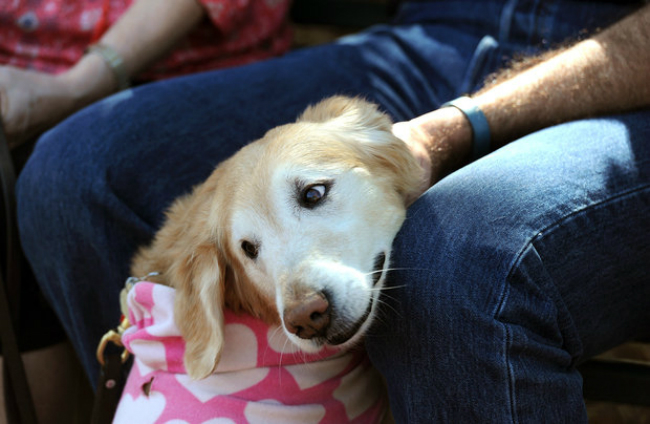

Gender roles are so pervasive that, like human personality characteristics, we impose them on our pets. All the time. Are we harming our dogs with these gender norms? Do we anthropomorphize our pups to their detriment? Are we making choices about how we choose, interact with, and train our dogs based on their sex—–as opposed to treating them as individual dogs? Are we unintentionally blocking our way to a true, deep, honest connection with them? You dog accepts you for who you are. So why do we assign them personalities and qualities based on the (human created) gender binary?
The way we view and treat our dogs is an allegory for how we treat fellow humans. It’s time that we, as a society think about gender roles.



